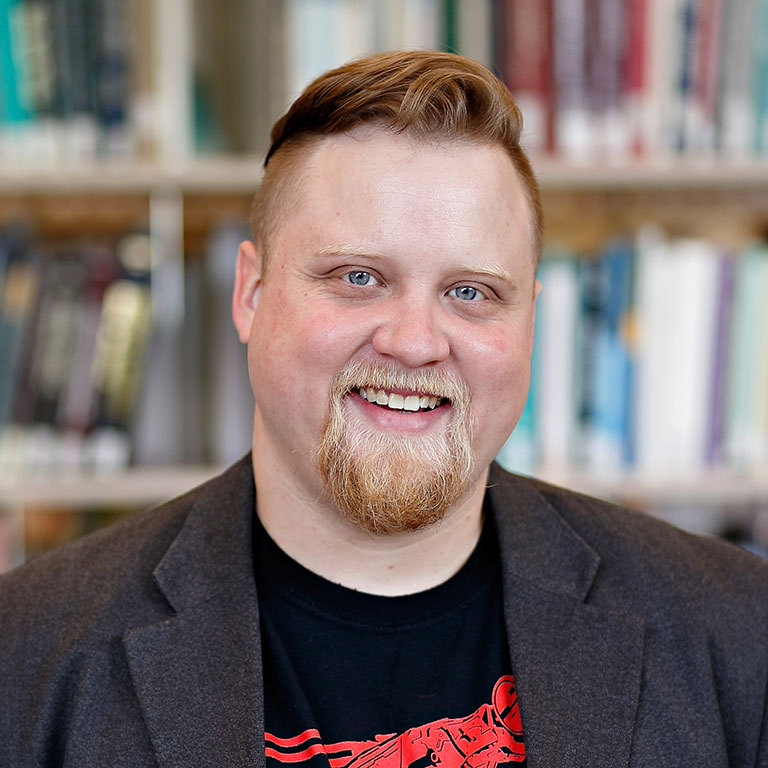Adam Henze, who earned his doctorate in Literacy, Culture, and Language Education last summer, has won a dissertation award from the Arts & Inquiry special interest group (SIG) of the American Education Research Association.
Henze said he was earnestly surprised to receive the award, adding he was feeling a little burned out when he learned the news. With the COVID-19 pandemic changing plans of defending his dissertation, much less celebrating with AERA at their annual conference, Henze is extremely grateful that his dissertation is being recognized.
Henze’s dissertation explores various learning communities that use spoken word poetry and hip hop in literacy education within different spaces, including secondary classrooms, elementary classrooms, higher education lecture halls, arts festivals, pop culture conventions, hip hop shows, spoken word open mics, poetry slams, academic summer camps and even a prison chapel, noting the commonality between all these learning spaces is that participants used poetry to explore critical issues like systemic racism, gender inequity, environmentalism and school reform. A focus of his dissertation is on how spoken word serves as a “culturally relevant pedagogy,” meaning that it is a way for educators to include the worldview of their students in their lesson plans. Henze took a creative approach to the research methodology of his dissertation and adopted the same playful tools that poets use such as metaphor, meter and line breaks.


